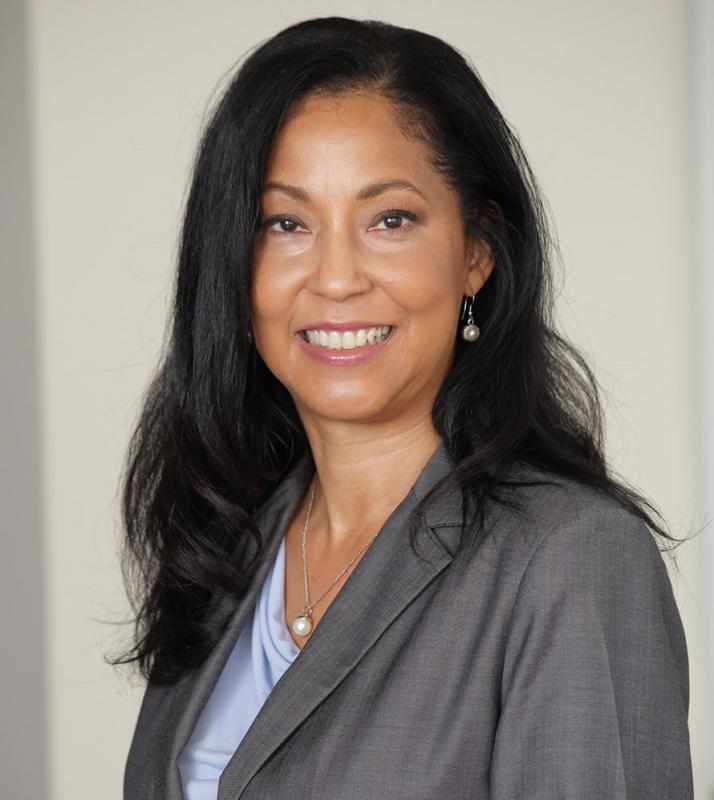An ORWH Concern: Women’s Health Around the World
By Dr. Janine A. Clayton
 Health is the ultimate wealth. It affects everything in the life of an individual, and can determine whether there is peace or conflict in the world.
Health is the ultimate wealth. It affects everything in the life of an individual, and can determine whether there is peace or conflict in the world.
This is why global health is an important part of our work at ORWH. In fact, two of the six goals of our 10-year strategic plan, Moving into the Future with New Dimensions and Strategies: A Vision for 2020 for Women's Health Research, are relevant to global health. One goal is to create strategic alliances and partnerships to maximize the domestic and global impact of women's health research. The other is to employ innovative strategies to build a well-trained, diverse, and vigorous women's health research workforce.
ORWH supports career development and mentoring for researchers in low- and middle-income countries. We participate in global efforts against gender-based violence, and we partner with other organizations to improve global health equity and empowerment for women and communities.
Some examples of the global health research that ORWH has helped to fund include a tobacco control network for Brazilian women, studies of gallbladder cancer in Chilean women, studies of the impact of indoor air pollution from cookstoves in developing countries, and human papillomavirus vaccine cancer prevention trials in Costa Rica.
Tobacco Control Network Among Women in Paraná, Brazil
Let me go into a little more detail about one of these international efforts. The Tobacco Control Network Among Women in Paraná, Brazil is a program that improves women's health and builds research capacity.
The Brazilian state of Paraná is a tobacco producing area of Brazil, the second-largest tobacco producer in the world after China. Right now, few women in Brazil use tobacco, but tobacco use among women is rising. In addition, women are exposed to secondhand (environmental) smoke or have occupational exposures to tobacco.
The Tobacco Control Network Among Women in Paraná is, among other projects, implementing public policies to reduce women's exposure to environmental smoke; developing and evaluating a gender-relevant, school-based, smoking prevention program; and studying the health and social issues of women in tobacco farming. The network has supported legislation that resulted in Paraná having the strongest indoor tobacco ban in the country.
Global Health Program for Fellows and Scholars
The ORWH has a strong commitment to career development, including through the Fogarty International Center's Global Health Program for Fellows and Scholars and the Medical Education Partnership Initiative (MEPI).
The Global Health Program for Fellows and Scholars is a great example of how NIH shares knowledge and collaborates to build research capacity in developing countries. ORWH contributes funds to this program, which provides mentorship and research opportunities for early-stage investigators from the United States and low- and middle-income countries. Many projects focus on women's health and maternal-child health, and in fiscal years 2013 and 2014, 60 percent of the scholars were women.
Among its many efforts, the program has supported scholars who have identified a source of water contamination in India, studied women's health issues in Malawi, and investigated the role of antioxidant status as a risk factor for gastric cancer in Zambia.
Medical Education Partnership Initiative
MEPI's creation was spurred by the critical shortage of physicians, researchers, and health care workers in sub-Saharan Africa. While this region carries 25 percent of the global burden of disease, it has only 3 percent of the world's health care workers, according to the World Health Organization. ORWH partnered with Fogarty and the U.S. President's Emergency Plan for AIDS Relief (PEPFAR) to support MEPI, funding programs in Uganda, Nigeria, Tanzania, Kenya, and Zimbabwe. The goal was sustainability—transferring knowledge and skills in health care education and research to ensure those skills will continue to grow with new generations.
Although this 5-year program has ended, MEPI helped to advance PEPFAR's goal to increase the number of new health care workers; strengthened in-country medical education systems; and built clinical and research capacity in Africa by retaining medical school faculty and clinical professors.
The ORWH continues to partner with Fogarty on a similar program, the Global Noncommunicable Diseases and Injury Across the Lifespan program. This program supports innovative and collaborative biomedical, behavioral, and social science research in noncommunicable diseases and injury in low- and middle-income countries.
Thinking and Acting Globally
We are becoming increasingly connected to people throughout the world. As this occurs, we must continue to work together to bring better health care to women in every corner of the Earth and we must continue to bolster our research capacity on women's health. ORWH will continue to join these global efforts.
